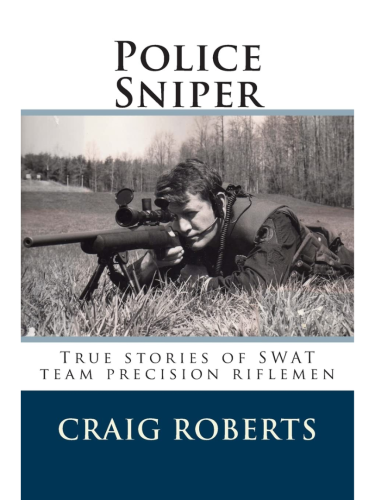SWAT members are likely to be the fittest, most disciplined and sharpest folks in your agency. They must be self-motivated, natural leaders. At least unofficially, rank means less than experience. Knowledge and skills are what are needed to lead a tactical team.
With that in mind, how do we develop leadership traits and experience in individual team members, so they may be more ready to take on that role in the future?
Here’s how we did it:
Training days
Every member with even a dozen or so practices under their belt will be responsible for planning and conducting a training day. Throughout the day, other members offer critiques about the value of the activities. After the training day is complete, that same member is responsible for documenting the training. All team members are given a copy of the training day summary and are responsible for making corrections, if necessary.
Ops orders
Some call them operations orders. Some call them raid plans. It doesn’t matter what you call them, but every member learns to write and conduct them after they’ve been on the team for a year. Obviously, an established team leader will vet and help polish the plan before the briefing and execution.
After the order is squared away, the same team member gives the briefing and conducts the operation, assuming everything goes as planned. If there are any contingencies – of course – responsibility reverts back to a previously designated, experienced team leader.
After the operation is completed, the planner conducts a debrief and is critiqued by the other members of the team. Then, they are responsible for properly documenting it. He or she is also responsible for ensuring that every member of the team turns in their own summary and files them per procedure.
Reading list
It is imperative newer members learn leadership principles while taking on these tasks. Giving them a reading list is a good idea.
I highly recommend Paul Howe’s excellent book, “Leadership and Training for the Fight.” Howe is considered one of the best instructors in the tactical arena on the planet. Also consider “Extreme Ownership” by former Navy Seals, Jocko Willink and Leif Babin. I buy these two books for every supervisor who works for me and require them to either read them or listen to the audiobooks. How do you know they read/listened to them? Follow up with conversations about the primary principles laid out by the authors. If you are not satisfied with their responses, assign homework in the form of questions about the aforementioned principles. It will get around to newer members that the books are not just gestures, but mantras they must understand to adapt to the culture of your team.
Let them fail
One of the hardest things for leaders to do is to let their people fail occasionally. It’s particularly difficult in law enforcement and exponentially so for SWAT bosses because the consequences of a bad decision can be extreme. It’s up to the leader/mentor to decide when and where this is a good practice.
Pain and humiliation are our greatest mentors. For example, I took my first force-on-force training in Colorado. We were using old-fashioned paintball guns that weren’t terribly accurate but still got the point across. Being in my 20s, I was not that open to criticism. One of the instructors told me, “You’re leading with your foot.” He meant that while I was working my way around a corner, my foot was exposed. I disagreed with him. He shrugged and walked away. The very next iteration, I deftly worked my way around another corner and felt a searing pain in my right pinky toe. I looked up to see that same instructor smiling the most obnoxious smile I’d ever seen. Lesson learned.
If you want them to be responsible, give them responsibility
If you want to grow responsibility in a subordinate, give them responsibilities and be there to mentor them. Law enforcement leadership is rife with micromanagers, which holds us back from developing young leaders in the profession. As stated above, leadership is particularly important on tactical teams and – due to the high-level quality of folks attracted to SWAT – it is the perfect opportunity to develop law enforcement leaders.
NEXT: 6 strategies for leadership in everyday life












